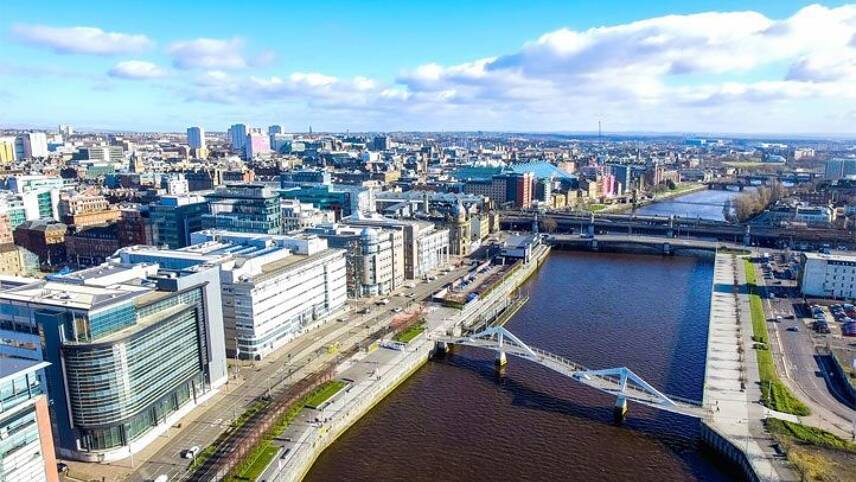Register for free and continue reading
Join our growing army of changemakers and get unlimited access to our premium content

Glasgow (pictured) is cited as a good example of a city beginning closer collaboration with its national government on issues such as energy efficiency
That is a key finding from a new report from CDP and ICLEI – Local Governments for Sustainability, out today (5 October). It is entitled ‘Working Together to Beat the Climate Crisis’.
The report assesses the climate plans of 965 of the world’s largest cities as well as 136 states and regions.
More than 90% of the cities, states and regions state that they are working with national governments and the proportion stands at 88% for local governments. Despite this, one-third of them said they will need more support from their government or governments to deliver their climate adaptation plans, while the proportion was one-quarter for those needing more support on decarbonisation.
Government support will likely need to be increased in the fields of decarbonised electricity grids and transport sectors. Additionally, new incentives, mandates and funding for decarbonising hard-to-abate sectors will likely need to come from the top-down. Progress in these areas, the report states, has generally been slower to date in lower-income nations than their wealthier counterparts.
These moves from governments will be essential to the net-zero transition, the report states, with just one-fifth of the cities currently on course to deliver 1.5C-aligned plans – and with cities accounting for 70% of global annual carbon emissions.
“Increasingly, national governments are including local and regional governments in their plans,” said the director of ICLEI’s Carbonn Climate Centre, Maryke van Staden. “But at this critical junction as we approach COP26, all levels of government must work together to raise targets and enhance vertically integrated NDC implementation and investment plans.”
The report also tracked how cities, states and regions are working with the businesses that operate within them to develop and implement climate solutions. Three-quarters said they have either forged one or more climate-focussed collaborations with a business or business, or are planning to do so within two years.
“Multilevel action and collaboration must be at the heart of a just, inclusive, holistic and nature-friendly transition towards climate neutrality and a sustainable future for cities, towns and regions around the world,” van Staden added.
As well as collaborating with government and the private sector, the report urges cities, states and regions to update their long-term climate plans and interim targets in line with a 1.5C pathway.
It also emphasises the importance of climate risk and vulnerability assessments (CVRAs), which can help form the foundations of credible adaptation and resilience plans.
The UN is hosting global, collaborative campaigns on both decarbonisation and adaptation which are open to cities – the Race to Zero and Race to Resilience.
These calls to action were made in CDP and ICLEI’s previous joint report. Published in May, that repot states that one-quarter of cities will need more funding to protect residents from physical climate risks such as floods. The funding gap was estimated to be $72bn.
Here in the UK, organisations including UK100, Green Alliance and the Government’s own National Audit Office (NAO) have warned that many local authorities need additional funding to walk the talk when it comes to their climate plans.
SDG Spotlight: How Businesses Can Achieve Goal 11 – Sustainable Cities & Communities
Readers interested in the issues raised in this article are encouraged to download edie’s free Sustainable Development Goal (SDG) Spotlight report on Goal 11 – Sustainable Cities and Communities.
Hosted in association with phs Group, this report takes stock of global progress to date, highlights remaining challenges and explores how businesses of all sizes and sectors can help to shape more environmentally and socially sustainable cities and communities.
Click here to download your copy.
Sarah George


Please login or Register to leave a comment.